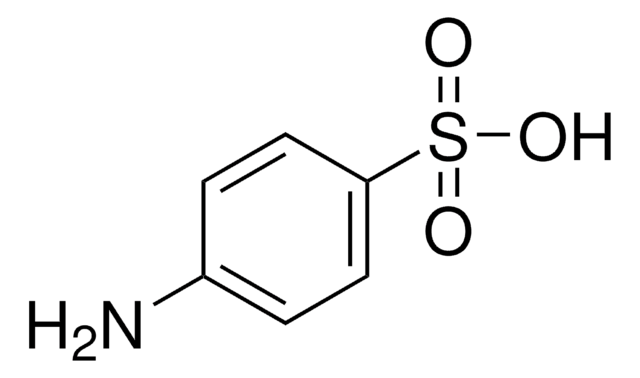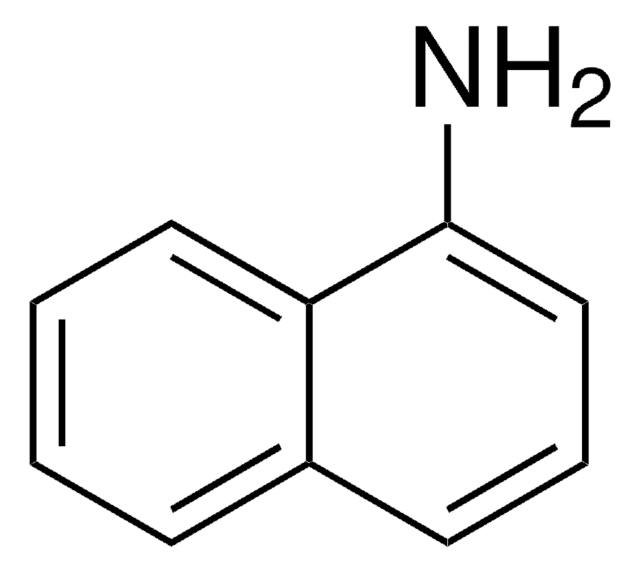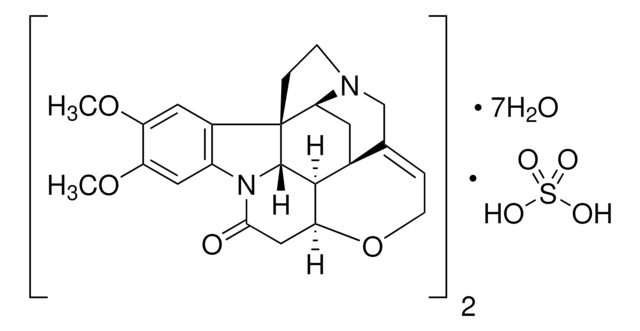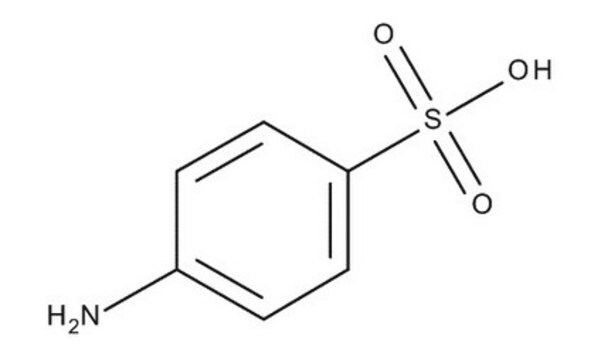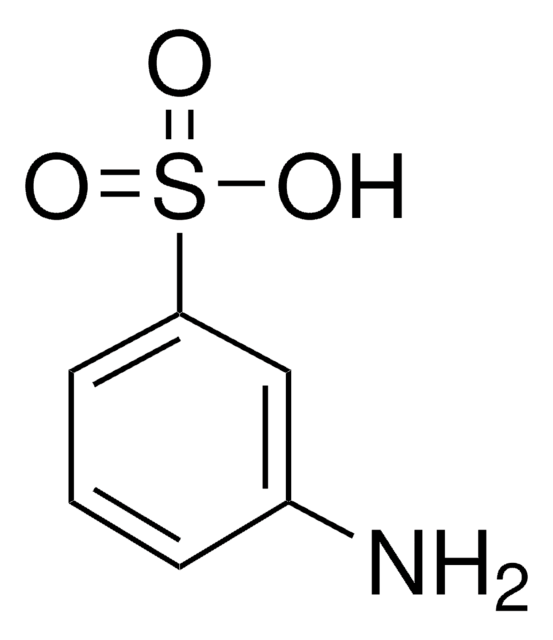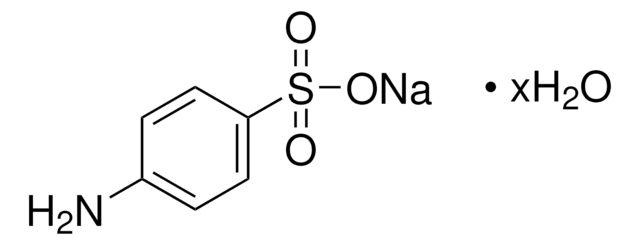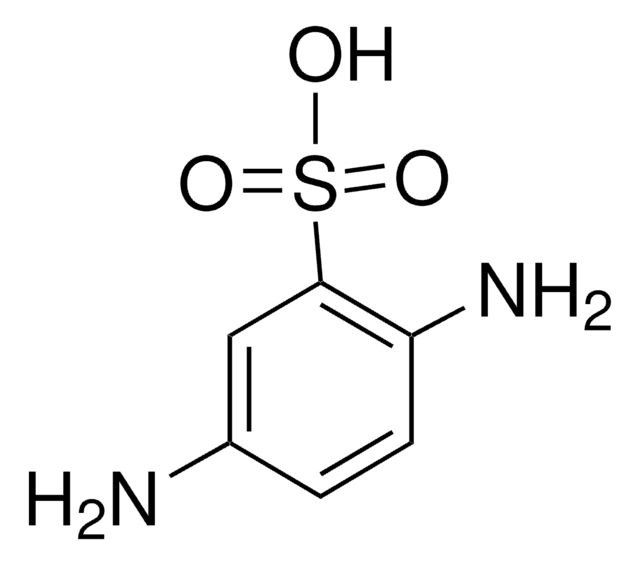86090
Sulfanilic acid
puriss. p.a., ≥99.0% (T)
Synonym(s):
4-Aminobenzenesulfonic acid, Aniline-4-sulfonic acid
About This Item
Recommended Products
grade
puriss. p.a.
Quality Level
assay
≥99.0% (T)
form
powder or crystals
impurities
≤1% ortho/meta-aminobenzene sulfonic acid (HPLC)
ign. residue
≤0.01% (as SO4)
mp
>300 °C (lit.)
anion traces
chloride (Cl-): ≤20 mg/kg
nitrite (NO2-): ≤0.5 mg/kg
sulfate (SO42-): ≤50 mg/kg
cation traces
Ca: ≤10 mg/kg
Cd: ≤5 mg/kg
Co: ≤5 mg/kg
Cr: ≤5 mg/kg
Cu: ≤5 mg/kg
Fe: ≤5 mg/kg
K: ≤50 mg/kg
Mg: ≤5 mg/kg
Mn: ≤5 mg/kg
Na: ≤50 mg/kg
Ni: ≤5 mg/kg
Pb: ≤5 mg/kg
Zn: ≤5 mg/kg
functional group
sulfonic acid
SMILES string
Nc1ccc(cc1)S(O)(=O)=O
InChI
1S/C6H7NO3S/c7-5-1-3-6(4-2-5)11(8,9)10/h1-4H,7H2,(H,8,9,10)
InChI key
HVBSAKJJOYLTQU-UHFFFAOYSA-N
Looking for similar products? Visit Product Comparison Guide
Related Categories
Application
signalword
Warning
hcodes
Hazard Classifications
Eye Irrit. 2 - Skin Irrit. 2 - Skin Sens. 1
Storage Class
11 - Combustible Solids
wgk_germany
WGK 1
flash_point_f
Not applicable
flash_point_c
Not applicable
ppe
dust mask type N95 (US), Eyeshields, Faceshields, Gloves
Choose from one of the most recent versions:
Already Own This Product?
Find documentation for the products that you have recently purchased in the Document Library.
Customers Also Viewed
Our team of scientists has experience in all areas of research including Life Science, Material Science, Chemical Synthesis, Chromatography, Analytical and many others.
Contact Technical Service